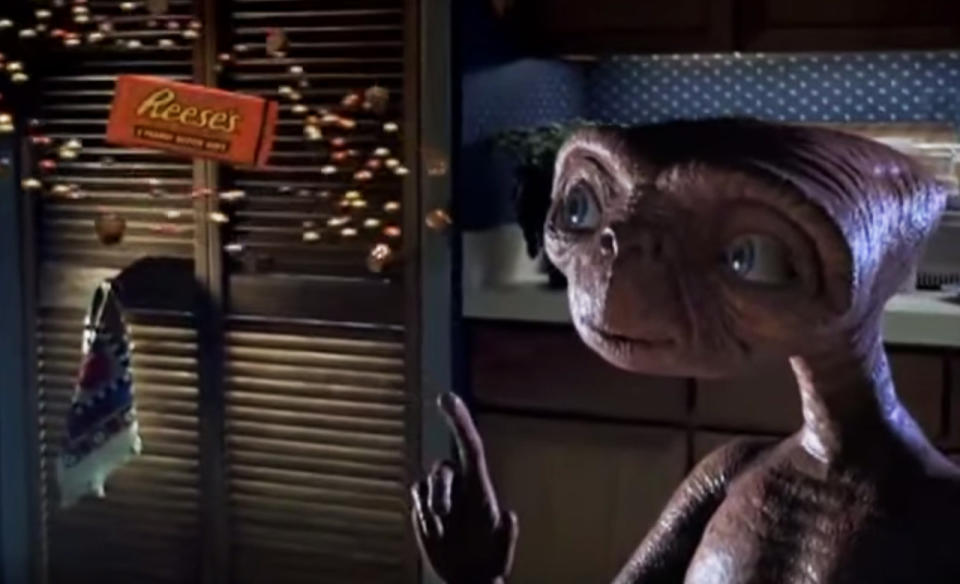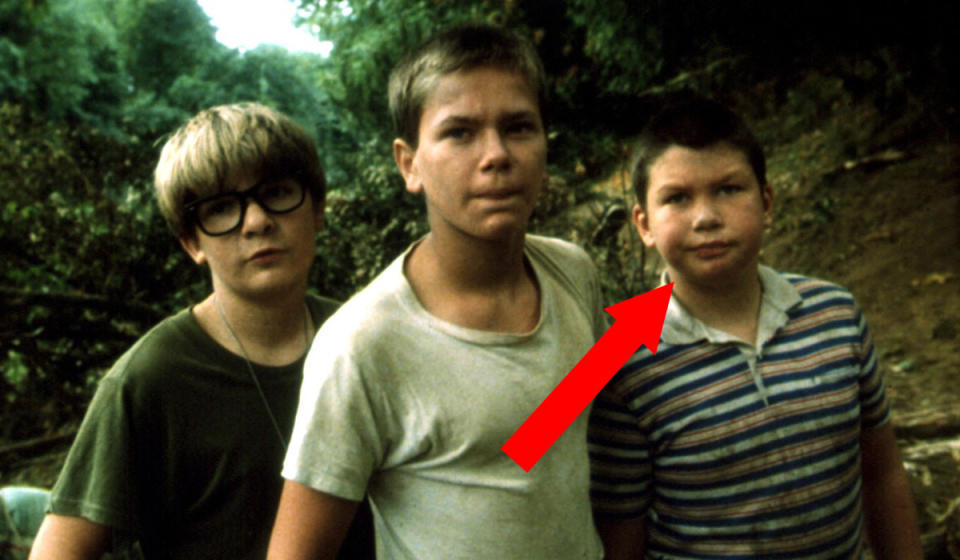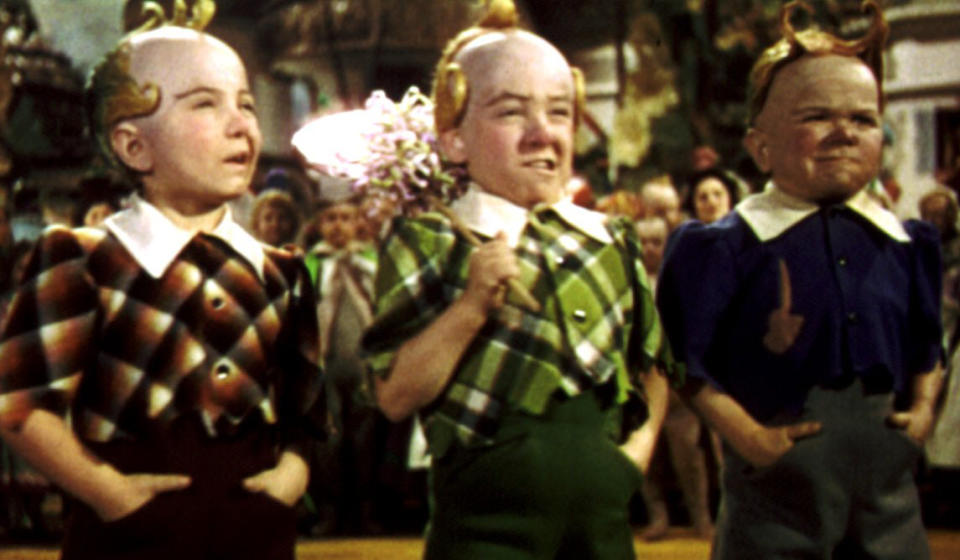10 Family Films With Really Dark Backstories
Lest you think filmmaking is all sunshine and lollipops, here are 10 reminders that showbusiness is an ugly business, and the family films which you hold dear to your heart were actually the cause of more than a little psychological scarring…
‘The Railway Children’ – The girl’s age was hushed up

Casting producers on the 1970 children’s adventure 'The Railway Children’ liked actress Sally Thomsett’s audition for 11-year-old Phyllis so much, they were willing to overlook one fairly significant point – that she was actually 20 years old. What’s more, Thomsett liked a drink and a smoke. She was forbidden from doing anything that 20-year-old girls do while on set – including seeing her boyfriend – as even the film’s crew didn’t know her real age. Thomsett was three years old than her on-screen big sister, Jenny Agutter, but was treated like a child by crew members, who gave her sweeties for good behaviour.
'The Sound Of Music’ – A Von Trapp almost drowned

The making of the 1965 musical classic wasn’t as happy-clappy as you might think. For starters, shooting on the movie very nearly led to tragedy, when Kym Karath, the actress playing Gretl, fell out of a boat and almost drowned – she couldn’t swim and Julie Andrews was unable to fetch her as planned. Andrews was disliked by co-star Christopher Plummer, who likened her presence to “being hit over the head with a big Valentine’s Day card every day”. Plummer, for his part, hated the film – he referred to it as “The Sound Of Mucus”, or occasionally as “S&M” – and was frequently drunk during shooting.
'Mary Poppins’ – The author really HATED it

If you’ve seen ‘Saving Mr Banks’, you’ll have some idea how difficult 'Mary Poppins’ author PL Travers could be, but that film didn’t really tell the full story. The struggle to have Travers relinquish the adaptation rights was legendary, and though she relented due to Walt Disney’s charm offensive, the author took this to mean she could demand entire scenes and songs be removed from the movie. Travers hated hated hated the final film and reportedly left the premiere in tears (Poppins as written was cold and terse, but Julie Andrews – the casting of whom Travers approved – played her as warm and engaging). 40 years after the release of the movie, PL Travers still held a grudge against Walt Disney and when she was asked to co-operate for a stage musical, she refused to let the Mouse House, or anyone associated with the film, have any part in its production.
'E.T. The Extra Terrestrial’ – Created product placement

It’s one of the most heart-warming, feelgood movies in history, but 'E.T. The Extra Terrestrial’ planted a seed that grew into a foul beast indeed – it was essentially the movie that gave birth to the concept of product placement. Back in 1982, the filmmakers had to ask permission to feature any branded products, and when Mars refused the use of M&Ms to lure E.T., Reese’s Pieces were drafted in after a promotional agreement was struck with choc barons Hershey. Sales of the gluttonous peanut butter snack tripled, and thus, product placement was born. Damn you, Steven Spielberg. Damn you to hell.
'Stand By Me’ – One of the child stars took drugs on set

According to Kiefer Sutherland, one location the child actors were shooting at was holding a Renaissance Fair, where all manner of knights and jesters and merry fellows japed and gamboled. Turns out the party wasn’t so innocent: Sutherland and his co-stars bought and devoured some cookies – presumably from an ancient stall that disappeared in a puff of smoke once the purchase had been made – that turned out to have been laced with marijuana. Some time later, after discovering they were out of their tree on drug biscuits, the castmates discovered their colleague, 11-year-old Jerry O'Connell, crying and high on pot cookies in the corner of the park.
'Aladdin’ – Robin Williams sued Disney

Robin Williams’ Genie made 'Aladdin’ the classic it is rightly heralded as today, but at the time of release, Williams had a major falling out with Disney. He was paid at union scale rate (i.e. the lowest rate possible) on the agreement that his voice wouldn’t be used in any merchandising and that his character wouldn’t take up more than 25% of any poster or trailer (“I don’t want to sell stuff,” Williams said. “It’s the one thing I don’t do”). When Disney broke the agreement, Williams withdrew his support for Aladdin and the actor did not return for the sequel, 'The Return Of Jafar’ (voice of Homer Simpson Dan Castellaneta deputised). Robin was so mad, he refused the gift of an original Pablo Picasso painting by way of an apology; only when Disney chairman Jeffrey Katzenberg was fired and replaced did Williams end his feud with the company, and he returned to voice Genie in threequel 'Aladdin And The King Of Thieves’. “You realize when you work for Disney why the mouse has only four fingers,” he later joked. “Because he can’t pick up a cheque.”
'The Wizard Of Oz’ – The dog got paid more than the Munchkins

Though the film itself is a classic, the shoot on 'The Wizard Of Oz’ was far from perfect. It was a different time back then; a time where the 'little people’ playing the Munchkins were paid less than half of what the dog who played Toto was earning (£32 per week, compared to Toto’s £80); a time where make-up contained copper and actors were prone to combusting near pyrotechnic special effects (Wicked Witch Margaret Hamilton suffered third-degree burns to her face and hands). Life wasn’t exactly sweet for Judy Garland, either; she had to squeeze herself into a tiny corset to appear flat-chested and younger, and when she struggled to contain her giggles while filming the scene where she had to slap the Cowardly Lion, director Victor Fleming took her to one side and slapped her in the face himself. Method directing, we assume.
'Star Wars’ – Everyone involved hated it… until it came out

How do we put this delicately? Apart from creator George Lucas, almost everyone involved in the making of 'Star Wars’ hated it – until it became a huge success, that is. One early pre-FX screening, attended by filmmaking luminaries like Steven Spielberg, Brian De Palma and John Milius, was a disaster; Lucas was consoled by his guests at his perceived misstep. The actors openly mocked George’s dialogue on set (“You can type this s**t George, but you sure can’t say it,” Harrison Ford told him); Alec Guinness, an esteemed and classically-trained actor, couldn’t stand the thought of being associated with a silly space opera and publicly belittled the 'Star Wars’ saga to anyone who’d listen. It was only when the movie opened to a bajillion dollars that the cast and crew realised, actually, they loved it all along. Which was very convenient.
'Willy Wonka And The Chocolate Factory’ – Awful health and safety

Director Mel Stuart and his crew tried real hard to create a set of “pure imagination” for the adaptation of Roald Dahl’s beloved book (a film which the author hated, incidentally), but it led to some rather bizarre set dressing. The chocolate river was indeed real, made from melted chocolate, cream and water, but no one realised the cream would quickly sour, and before long the river stank like a milky sewer running through the set. Many of the props were made to be edible, but they weren’t all edible – the child stars were reportedly forever attempting to eat wooden chocolate bars. The health and safety wasn’t much up to scratch, either; the foam in the 'Wonka Wash’ sequence was a major skin irritant and put the cast in medical recovery for days, while the blue make-up applied to Denise Nickerson for her blueberry transformation was still seeping out of her pores weeks later.
'Home Alone’ – Macaulay Culkin’s parents (allegedly) stole his salary

Following the success of 'Home Alone’, Macaulay Culkin was the child actor who had it all before he’d even hit puberty – except he wasn’t getting it all, because his parents were mismanaging all of his money. John Hughes’ iconic Christmas movie was the springboard that set Culkin on the road to stardom: just two years after first playing parentally-neglected youngster Kevin McAllister, Culkin earned £2 million for the sequel. However, it soon became apparent that all was not well in the Culkin household: at age 16, Macauley filed to become emancipated from his parents, who he claimed were mis-handling his paycheques; what’s more, his father allegedly made him sleep on the couch at home. “My father was overbearing. Very controlling,” Culkin later said. “He was always the way he is, even before my success. He’d play mind games to make sure I knew my place.” Culkin legally divorced himself from his parents, won control of his earnings and landed £10 million for his troubles.

 Yahoo Movies
Yahoo Movies 
